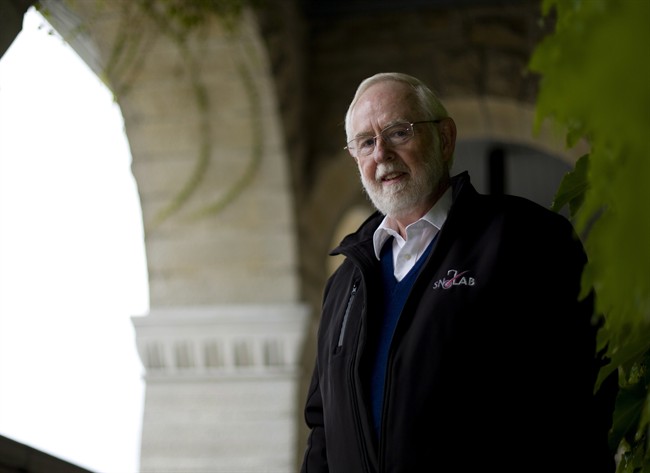AN FRANCISCO – Canada’s recent Nobel laureate Arthur McDonald has won another big science award: the Breakthrough Prize in Fundamental Physics.

The $3-million award will be shared equally among five experiments, including McDonald’s famous work at the Sudbury Neutrino Observatory.
McDonald won the Nobel Prize for the same work last month.

Get breaking National news
READ MORE: What are neutrinos and why do they matter?
McDonald and his team discovered neutrino oscillations and that neutrinos change identities, thereby proving the tiny particles have mass.
The Breakthrough Prize for Fundamental Physics was founded by Russian physicist and entrepreneur Yuri Milner and recognizes profound contributions to human knowledge.
McDonald says he and his team worked very hard on the experiment, which was the result of a large and effective collaboration with many scientists from several universities.







Comments